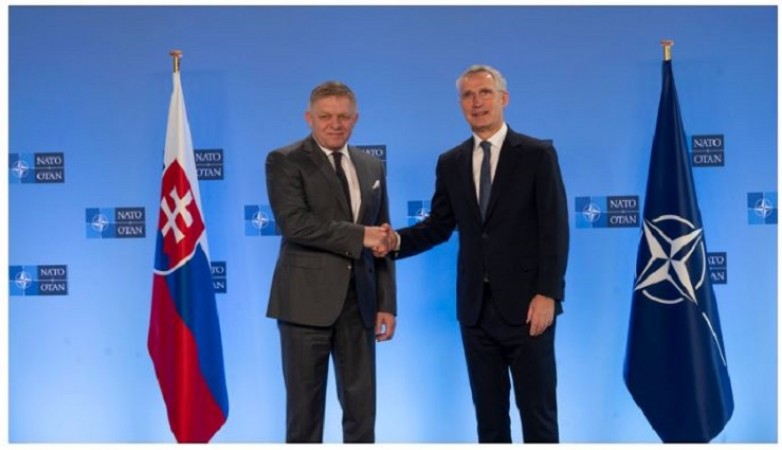
BRUSSELS:In a year marked by dynamic shifts, the 31-nation military alliance, NATO, dedicated significant efforts to fortify defense measures and reinforce deterrence, particularly in support of Ukraine against Russia. Notably, NATO welcomed Finland as its 31st member, marking its ninth expansion.
The year began with a clear focus on Ukraine, following the strained relations with Russia in the preceding year. Jens Stoltenberg, NATO's Secretary-General since 2014, had his term extended to October 2024 due to the ongoing Russia-Ukraine conflict, highlighting the evolving security landscape in Europe.
Stoltenberg emphasized the need for increased defense investment among NATO allies, with multiple meetings throughout the year prioritizing defense and readiness levels of NATO forces.
NATO and its allies remained steadfast in supporting Ukraine, providing essential aid such as air defense systems, heavy weaponry, and crucial supplies like fuel and communication devices. Tanks, including Abrams from the US, Challenger 2 from the UK, and Leopard 2 from Germany, were delivered to Ukraine, bolstering its defense capabilities.
The alliance also facilitated F-16 training for Ukrainian pilots in allied countries, paving the way for the delivery of fighter jets in the upcoming year.
In efforts to strengthen relations, the NATO-Ukraine Council held meetings at both leader and foreign minister levels, signaling NATO's commitment to Ukraine's future inclusion once specific conditions are met and the conflict resolves.
Collaboration with the European Union (EU) received particular attention, with joint efforts against shared threats from Russia and China highlighted in a joint statement. Discussions centered on increasing ammunition production and supporting Ukraine through combined procurement strategies.
Amid the conflict, NATO restructured its defense plans, expanding combat groups in eight countries along its eastern flank and increasing troop deployment to 40,000. Additionally, large-scale military exercises like "Air Defender 2023" involved over 250 aircraft and 10,000 personnel from 25 countries, showcasing NATO's preparedness.
Key changes to NATO's defense plans, including the approval of deploying 300,000 troops to its eastern flank within 30 days, were endorsed during the NATO summit in Vilnius. Emphasis was placed on urging member countries to boost defense spending and industry production to implement these plans effectively.
The summit held in Lithuania's capital, Vilnius, underscored the significance of NATO's presence in a region historically close to Russia, with Ukrainian President Volodymyr Zelenskyy joining NATO leaders.
Moreover, the year witnessed Finland's accession as the 31st NATO member, while Sweden's membership discussions continued with technical meetings and the signing of the Accession Protocol, further bolstering the alliance.
In response to escalating tensions, NATO sent additional troops to Kosovo, highlighting its commitment to stability in the Western Balkans.
The emergence of China as a focal point in NATO's discussions was notable, with concerns raised about its actions and cooperation with Russia. Discussions involving nations like Australia, New Zealand, Japan, and South Korea emphasized the need to address China's evolving military capabilities and its alignment with Russian interests.
NATO's focus on strengthening defense, expanding membership, and addressing emerging global challenges characterized its actions in 2023, marking a year of significant developments and strategic initiatives for the alliance.